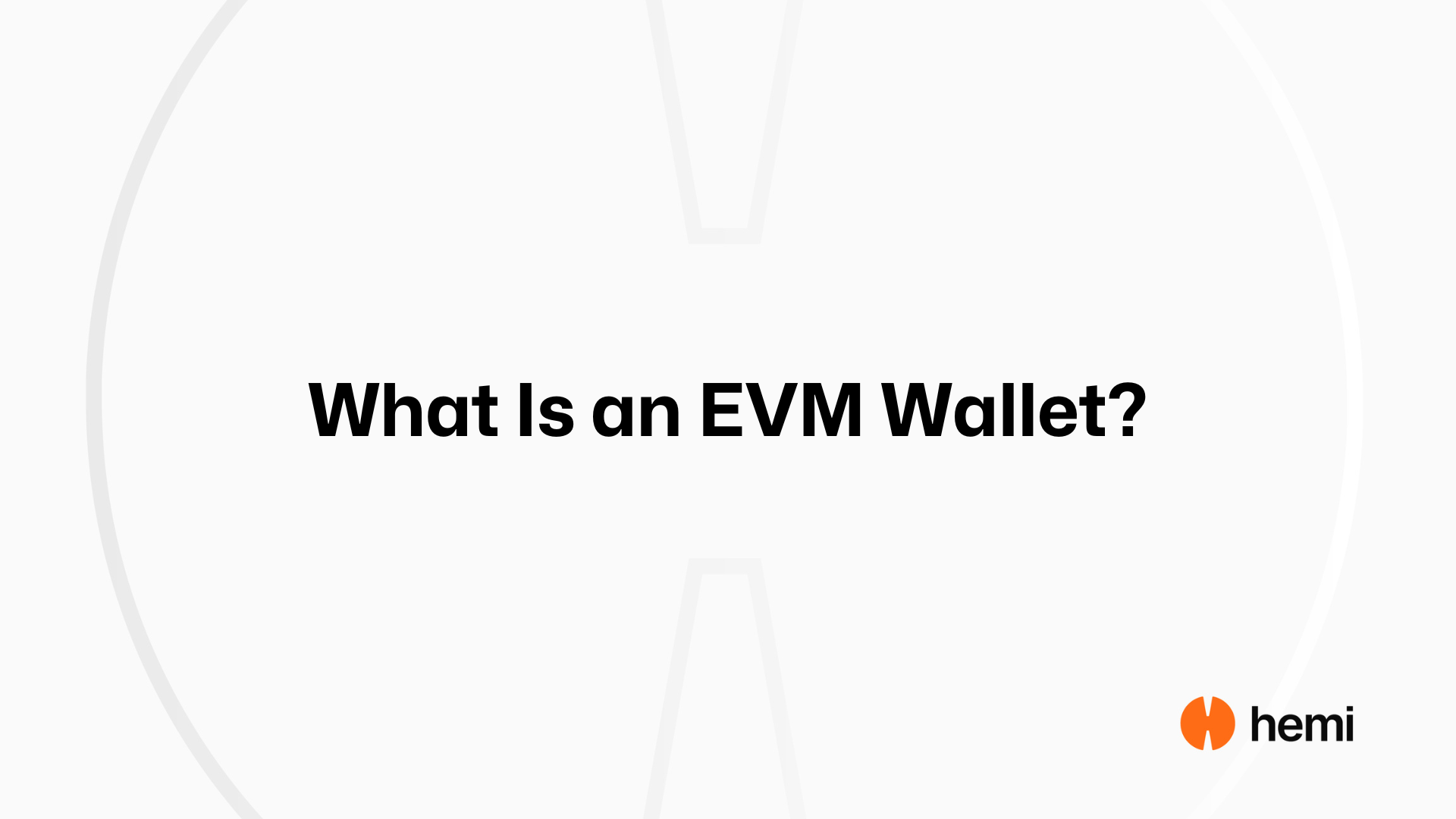- Bitcoin
- Ethereum
- Hemi
- Learn Center
- April 2, 2025
What Is an EVM Wallet?
An EVM wallet stores blockchains that support the Ethereal Virtual Machine (EVM).

An EVM wallet is a software tool that lets users interact with blockchains that support the Ethereum Virtual Machine (EVM). These wallets store private keys, manage user identities, and make it possible to send transactions and run smart contracts. Without an EVM wallet, using Ethereum or any EVM-compatible chain is almost impossible.
The Ethereum Virtual Machine is the runtime environment that executes smart contracts on the Ethereum network. It acts like a global computer. If a blockchain is “EVM-compatible,” it can run the same kinds of smart contracts and use the same tools as Ethereum. That includes wallets.
The most common EVM wallet is MetaMask. Others include Rabby, Trust Wallet, and Frame. These wallets can be browser extensions, mobile apps, or desktop programs. They work by storing a user’s private key securely, usually protected by a password or biometric method. That private key gives access to the user’s Ethereum address and funds.
The wallet’s main job is to let users sign and send transactions. This includes sending ETH, using DeFi apps, minting NFTs, or interacting with a DAO. The wallet formats the transaction, sends it to the network, and shows the result. Since EVM wallets work across all EVM chains, they can connect to Polygon, Arbitrum, Optimism, Base, and others. The same wallet address can be used across all of them.
Another use of the wallet is identity. Many applications use “Sign in with Ethereum,” where the wallet proves the user’s control of their address. This becomes a portable identity across web3. It removes the need for usernames and passwords. Instead, the user just signs a message in their wallet.
EVM wallets can also handle multiple accounts and networks. They let users switch between Ethereum mainnet and testnets like Goerli, or between Layer 2 chains and sidechains. They show token balances and NFTs, and they can be extended with custom RPC endpoints for niche use cases.
Security is the weak point. If someone gets access to your private key or recovery phrase, they can steal your assets. Wallets try to prevent this with warnings, secure recovery flows, and sometimes hardware support. But phishing and social engineering are still common.
In short, an EVM wallet is not just a crypto wallet. It’s a gateway to the entire Ethereum ecosystem. It stores assets, manages identity, signs transactions, and connects to apps. For anyone using Ethereum, it’s the first and most important tool in their arsenal.